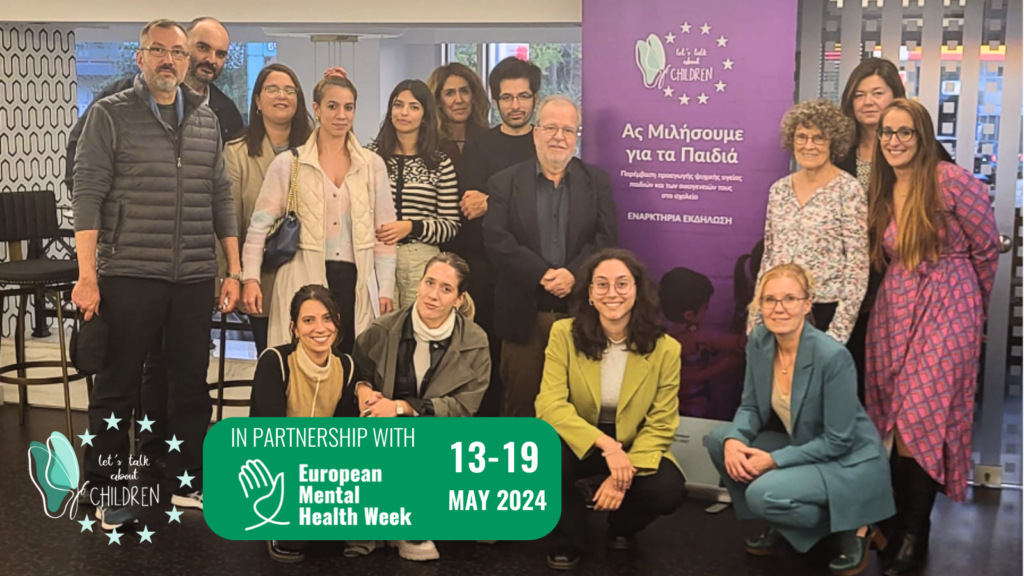Co-creating the future of Let’s Talk: National and Kapodistrian University of Athens, Greece
Let’s Talk About Children joins the European Mental Health Week 2024 with a series of blog posts focusing on co-creational aspects behind the LTC practice. Project partners answered the same questions to reflect upon similarities and differences in national approaches, to learn from each other and highlight the importance of co-creation in mental health practices.

What are the main goals that the Let’s Talk About Children project is trying to achieve regarding children’s mental health in Greece?
The Let’s Talk about Children in Greece project focuses on providing a brief, structured, and effective intervention that fosters open communication and collaboration between educators, mental health professionals and parents. The primary objective is to comprehensively address children’s psychosocial needs while promoting positive parenting practices. Prioritizing the mental well-being of children and families is of paramount importance. Recognizing and addressing parental challenges while promoting candid conversations about difficult topics within families serve as protective measures that bolster family dynamics, thereby nurturing children’s resilience and overall well-being.
The intervention aims include, establishing a framework of mutual understanding and collaboration between educators, mental health professionals and parents to enhance family support systems, mitigating psychosocial issues in challenging circumstances, fortifying family protective factors, and identifying children and families requiring additional psychosocial assistance. By integrating LTC into school settings, our aim is to create a platform for synergistic collaboration between home and school environments, enabling parents and teachers to gain deeper insights into children’s psychosocial needs both at home and in the classroom. Moreover, we endeavor to raise awareness about children’s needs among the broader public, clinicians, and policymakers. Additionally, we strive to embed LTC into mental health policies, strategies, and action plans at local, regional, and national levels.
A key objective of Let’s Talk is to establish a network of governmental representatives who advocate for the integration of LTC into local and national strategies and policies. Through these efforts, we aim to underscore the importance of proactively promoting, supporting, and safeguarding the mental health of children and families.
Can you provide a specific example of how the Let’s Talk About Children project in Greece engaged diverse stakeholders in collaborative processes?
On November 24, 2023, the National and Kapodistrian University of Athens hosted the local Kick Off Meeting, aiming to raise awareness about the promotion of children’s mental health in Greece and disseminate the Let’s Talk about Children method. The Greek LTC team invested significant effort in gathering representatives from various health and mental health institutions, as well as educational institutions. The objective was to engage key policy and decision makers crucial for the successful implementation and national adoption of the LTC methodology, alongside professionals such as educators, mental health specialists, and members of the general public, including parents. This inclusive approach facilitated the exchange and consideration of diverse perspectives, opinions, and insights regarding children’s wellbeing.
Among the stakeholders present were representatives from the Ministry of Health, Ministry of Education Religious Affairs and Sports, Hellenic Society of Child and Adolescent Psychiatry, National and Kapodistrian University of Athens, and the Ministry of Public Order and Citizen Protection. The event featured speeches and presentations underscoring the importance of nurturing and supporting children’s wellbeing and mental health. Furthermore, it highlighted the distinctive role of the LTC method in enhancing the psychosocial adjustment, wellbeing, and mental health of students and their caregivers, while fostering collaboration between home and school environments when implemented in schools.
The diverse backgrounds and roles of the attendees prompted insightful questions and fruitful discussions. Members of the press were also in attendance, aiming to amplify the reach of this initiative and disseminate its message to a broader audience nationwide.
What have you learnt from the different people and stakeholders you interacted with in this first part of the Let’s Talk About Children project?
A key need addressed by the LTC method in the Greek school environment is bridging the communication gap between parents and school staff—a gap exacerbated by challenges commonly faced in Greek schools, such as overcrowded classrooms, understaffed schools, and difficulties in addressing students’ health and mental health needs. The LTC method facilitates open and equitable communication between home and school by acknowledging these challenges and actively seeking solutions, thereby transforming the school into a safe space where all voices are heard.
Discussions among decision makers, school and educational staff, mental health professionals, and parents alike shed light on shared experiences and perspectives regarding the school environment. The emergence of similar issues from diverse viewpoints underscores the potential for achieving a common understanding—an essential tenet of the LTC method—regarding the needs of the school community. Collaboration between home and school can play a crucial role in fostering this common understanding and awareness, establishing a network capable of reaching policy and decision makers.
By doing so, the school system can better address its diverse needs and provide more effective support for the psychosocial wellbeing of students.
How can the LTC method promote an approach to mental health where everyone’s voice is given equal attention, respect, and value?
The Let’s Talk about Children method was developed to support both parents and professionals, including educators and mental health practitioners, in nurturing the overall well-being, learning, and development of children. Central to this approach is the emphasis on collaboration among all stakeholders, including the children themselves. The primary goal is to establish a shared understanding of the child’s needs, both within the home and school settings, and to devise actionable steps to address them. This collaborative effort aims to provide meaningful contributions to the child’s daily life and growth, while fostering a cooperative relationship among parents, the child, and school personnel.
Practically, the intervention typically involves one or two discussions, supplemented by a “Let’s Talk about Children” Network Meeting if deemed necessary. During these sessions, individuals selected by parents convene to explore strategies for supporting the child. The child’s participation in these discussions is determined collaboratively by the parents and the child, ensuring their input is valued. Moreover, parents are encouraged to engage with their child on key topics outlined in the manual and to convey their perspectives during meetings. This approach underscores the collaborative endeavor among parents and professionals to promote the child’s growth and well-being.
By affording all participants in the LTC discussions the opportunity to engage in open dialogue where their voices are valued, the method ensures that each individual feels heard and respected. This fosters a sense of empowerment and reinforces the notion that everyone’s contribution is valuable in supporting the child. It is noteworthy that involving individuals from the child’s supportive environment further enriches this approach, promoting the mental health of both children and families.
Learn more about the National and Kapodistrian University of Athens.
